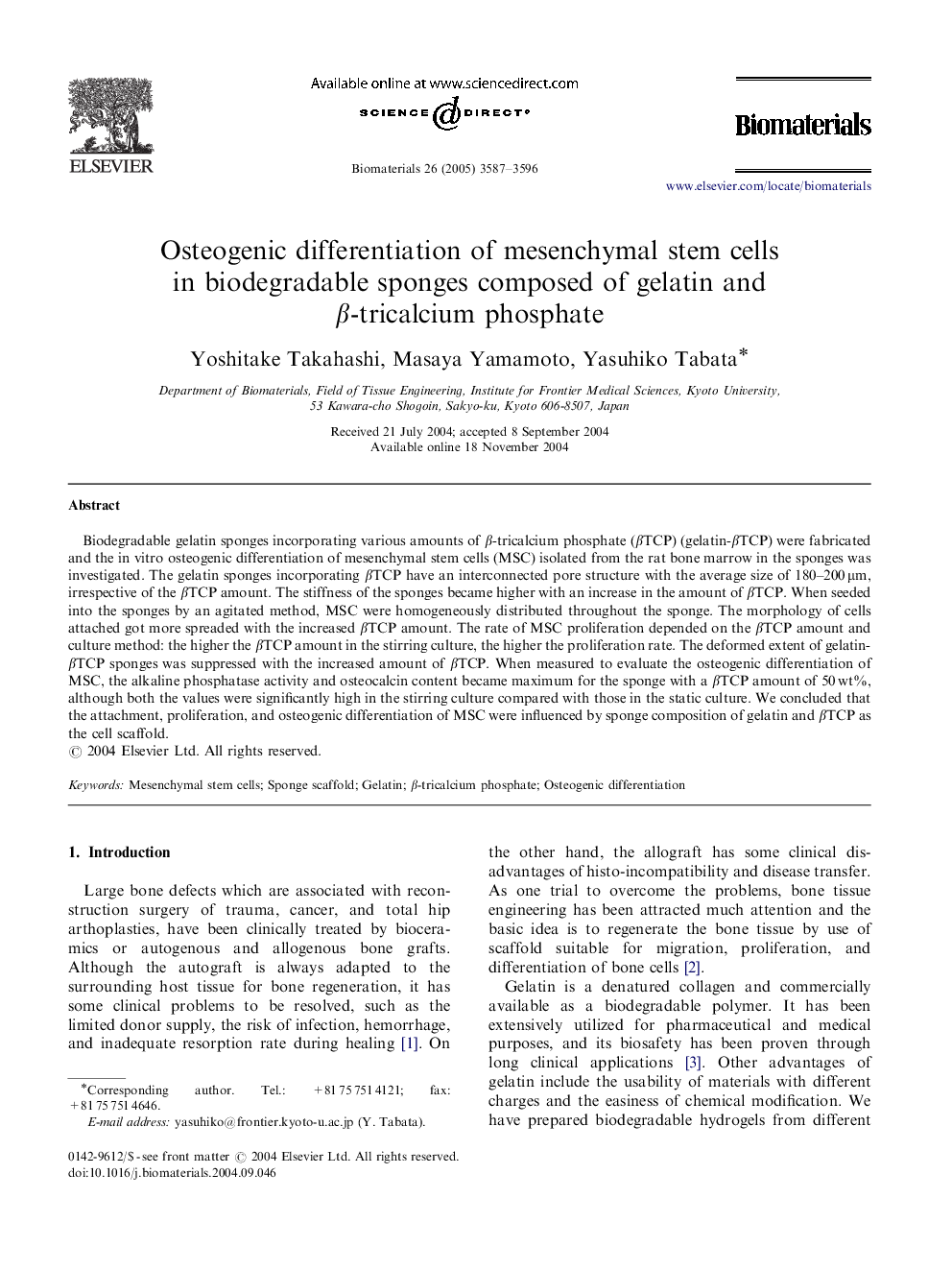| Article ID | Journal | Published Year | Pages | File Type |
|---|---|---|---|---|
| 12739 | Biomaterials | 2005 | 10 Pages |
Biodegradable gelatin sponges incorporating various amounts of β-tricalcium phosphate (βTCP) (gelatin-βTCP) were fabricated and the in vitro osteogenic differentiation of mesenchymal stem cells (MSC) isolated from the rat bone marrow in the sponges was investigated. The gelatin sponges incorporating βTCP have an interconnected pore structure with the average size of 180–200 μm, irrespective of the βTCP amount. The stiffness of the sponges became higher with an increase in the amount of βTCP. When seeded into the sponges by an agitated method, MSC were homogeneously distributed throughout the sponge. The morphology of cells attached got more spreaded with the increased βTCP amount. The rate of MSC proliferation depended on the βTCP amount and culture method: the higher the βTCP amount in the stirring culture, the higher the proliferation rate. The deformed extent of gelatin-βTCP sponges was suppressed with the increased amount of βTCP. When measured to evaluate the osteogenic differentiation of MSC, the alkaline phosphatase activity and osteocalcin content became maximum for the sponge with a βTCP amount of 50 wt%, although both the values were significantly high in the stirring culture compared with those in the static culture. We concluded that the attachment, proliferation, and osteogenic differentiation of MSC were influenced by sponge composition of gelatin and βTCP as the cell scaffold.
